
电话:+86 13910991951
email:service@sinogene.com.cn


For the first time, Chinese scientists have developed a model of autism spectrum disorder (ASD) in dogs by using gene-editing technology, a breakthrough that will provide a new avenue for developing medicines in treating the brain disease, the Global Times learnt from the research team.
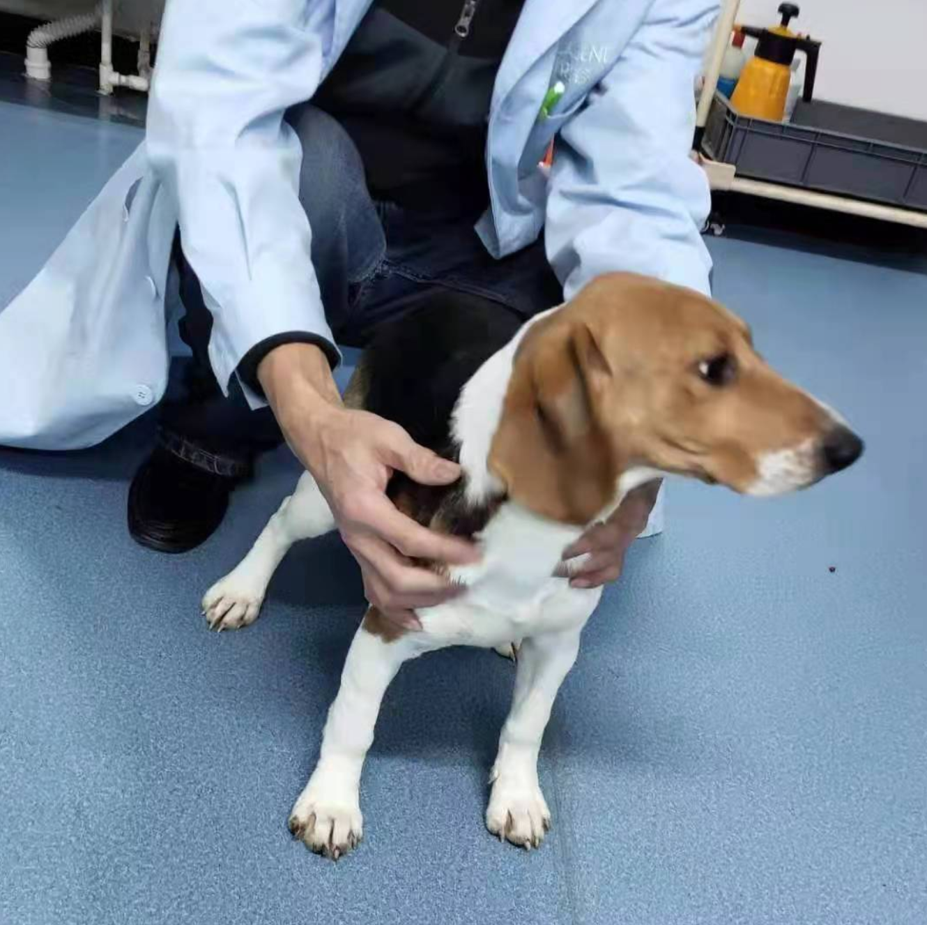
Reporter Wu Chunyan and Lei Aixia learned from the Guangzhou Institute of Biomedicine and Health of the Chinese Academy of Sciences that the hospital cooperated with Beijing Sinogene Biotechnology Co., Ltd., and successfully bred the world's first human permanent neonatal diabetic dog model by using a single base editor to carry out point mutations on glucokinase. The study was published online recently in Cell Discovery.
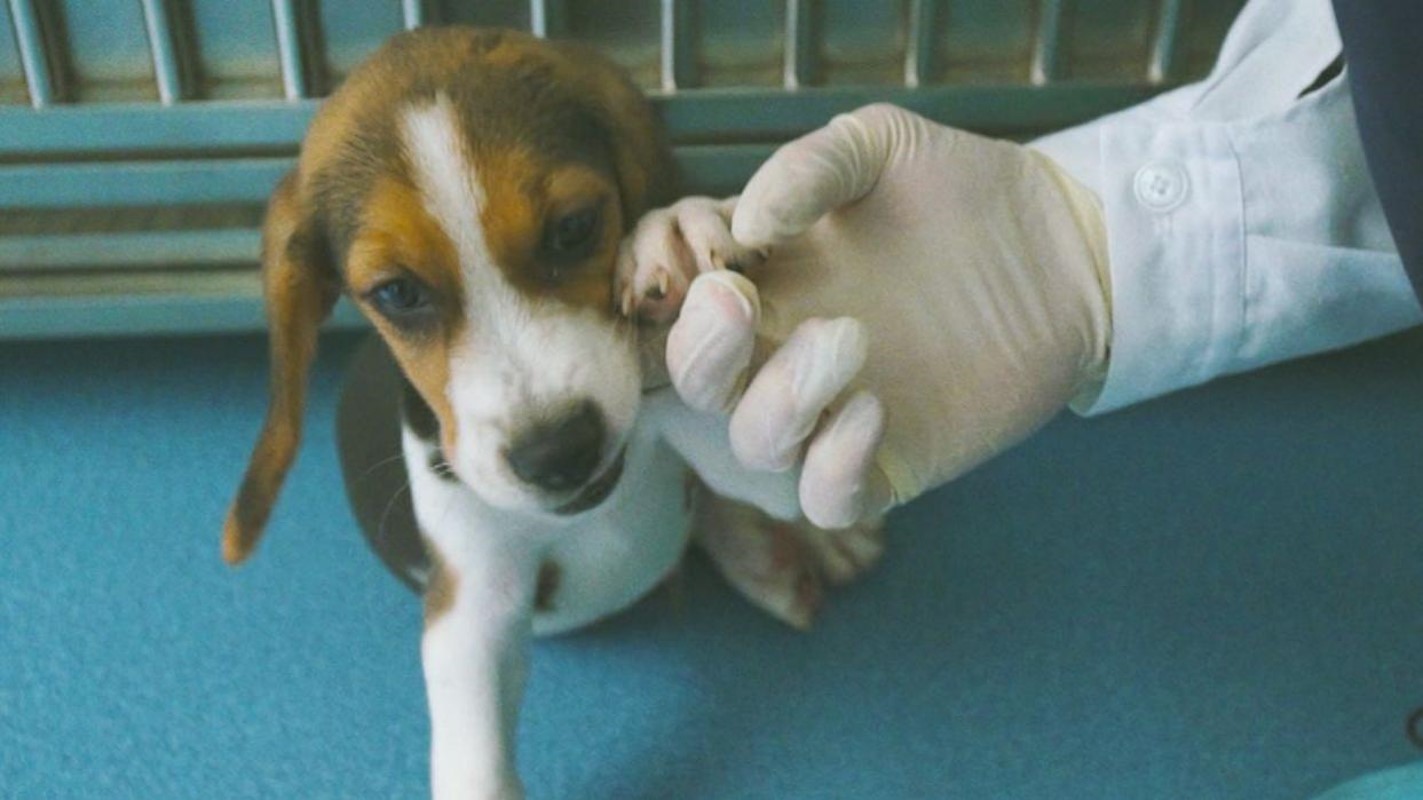
Beijing CNN— With his black, brown and white fur, Longlong looks like most beagles. But the puppy has been sick with a blood-clotting disorder since birth — exactly what scientists in China had wanted.
The pup was cloned from Apple, a different dog whose genome was edited to develop the disease atherosclerosis.
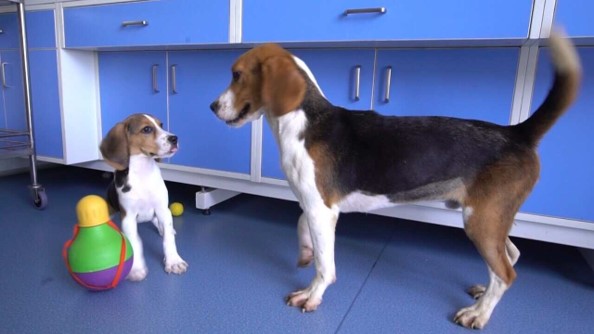
Beijing biotech lab Sinogene say they have successfully cloned a genetically-modified dog for medical research, and now plan to use the same technology to create "superdogs" for Chinese police.
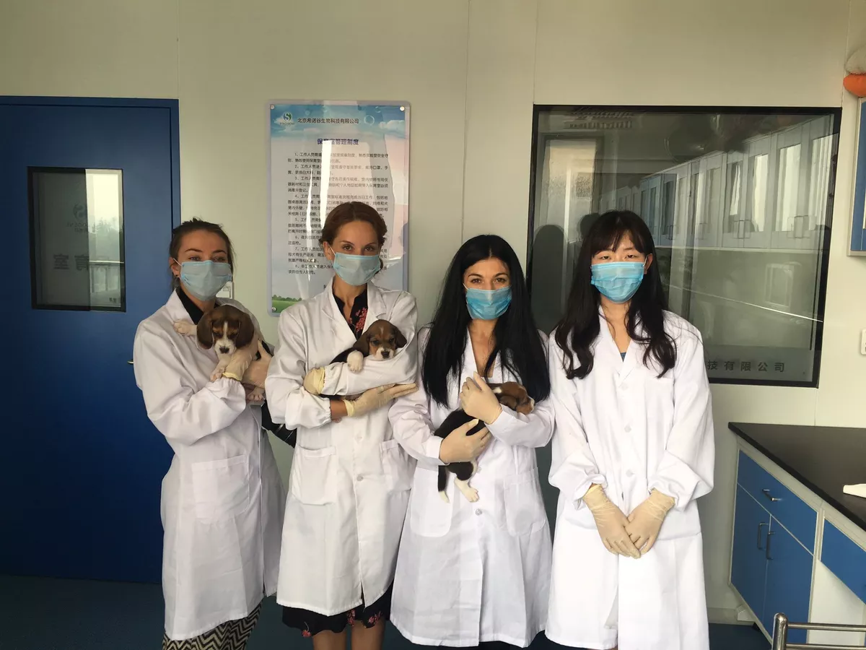
Корреспонденты РИА Новости посетили лабораторию пекинской биотехнологической компании SinoGene, где Лун Лун появился на свет, чтобы выяснить, почему выбор китайских ученых пал на собаку и для каких целей они решили заняться модификацией генома четвероногого друга человека.
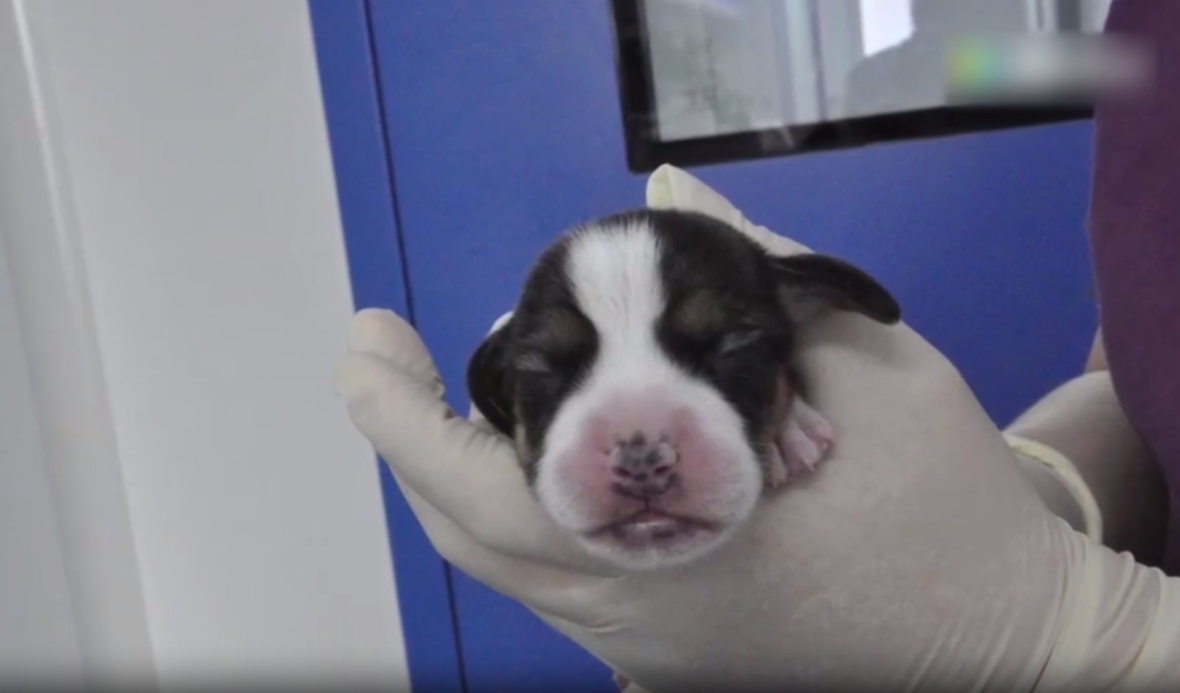
A black, white and yellow puppy sucks its mother's milk at the breeding laboratory of Beijing Sinogene Biotechnology Co., Ltd. But she was born to a surrogate mother, an ordinary beagle; Its donor cells came from Apple, the world's first gene-edited disease model dog.
Kindly fill out this short message and we will contact you in 24hrs.